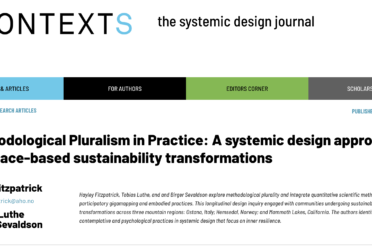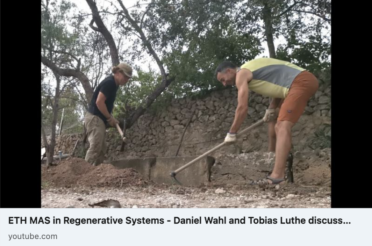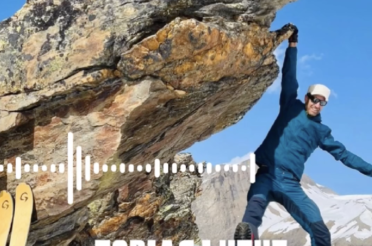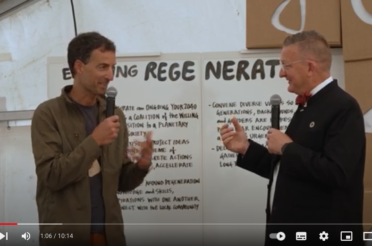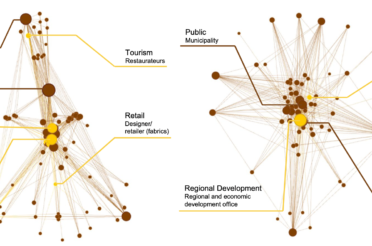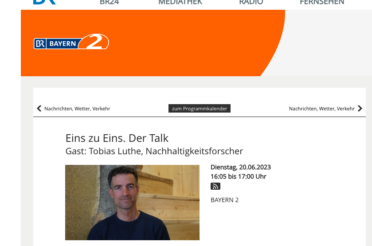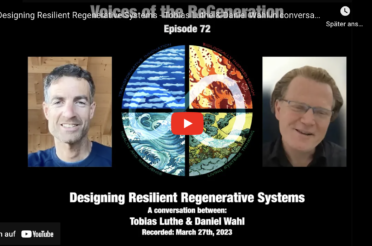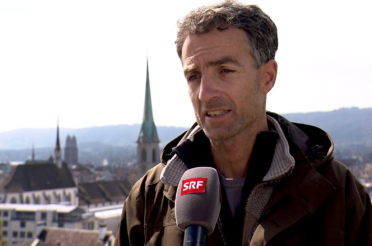Design, Resilience, Regeneration, Systems
An innovative didactic offered by ETH Systemic Design Labs, designed and produced by Tobias Luthe, Justyna Swat, Daniel Wahl
Being offered first time from April-May 2022, this new MOOC series (Massive Open Online Course) entitled Designing Resilient Regenerative Systems hybridizes sustainability science, systemic design and transformative action. It provides you with worldviews, tools, illustrations and transformative networks to build your capacities and engage in systemic innovation of complex systems.
Climate change and pandemics like Covid-19 are some of today’s most pressing complex challenges we as a society have to address; much of our economies and societies prove to be not resilient and regenerative, but exhaustive, vulnerable, and unfair. Scientific knowledge and reasoning are the fundamental tools to base policy and management decisions on, especially in times of crises. But we currently as well experience the limits of science alone when it comes to dealing with highly complex systems that are self-emergent, unpredictable, span across nested scales, depend on societal behavioral transitions, and lack data.
The increasingly fast-changing world requires as well skillsets of relational holism and creative weaving of effective solutions in cooperation. Such solutions need to strengthen regional bio-economies and local communities, while increasing cooperation on a sub-national scale, across national boundaries, still making us less dependent on global supply chains.
A MOOC series about creating positive impact in complex systems as part of learning communities
You will find different entry points to connect with this MOOC series: deep philosophical discourse, insights into the latest state of science on sustainability and resilience, designerly practice, hybrid methods, concrete design principles, real-world illustrations, and a motivating community.
Exciting real-world illustrations will take you to Hemsedal Norway, Annecy France, Ostana Italy, and Mallorca Spain – from material supply chains, to products, buildings, communities and their services, to landscapes, bio-regions, and transnational cooperation. This offers a comparative understanding of communities and regions undergoing sustainability transitions across different contexts, cultures, climates and geographies.
The prominent methods you will learn are systemic design and systems-oriented design, social network analysis, resilience assessment, life cycle and footprint analysis, circularity mapping, visual dialogue, cross-scale design, “view from above” perspectives, biomimicry, transdisciplinary research, real-world elaboration, and more.
The MOOCs’ didactics are designed to combine time and place independent virtual learning through pre-recorded conversations and presentations, both accessible as movies and audio files, readings, and practical engagement outside in nature. Virtual content is meant to stimulate physical and social interaction in the bio-region where the participant lives. Systemic Cycles takes the participant on a conscious exploration of place and regional supply chain actors on their bicycle, to playfully learn systemic design methods, to weave together local and regional networks and to explore the inner self through physical activity. An accompanying visual mapping process called Gigamapping acts as a designerly way to co-create your own learning journey and connect across the MOOC series to your final transformative design project. Your personal QUEST guides you through your learning journey. Weekly live tutorials in an online forum offer opportunities to discuss and brainstorm with teachers.
You will learn together with diverse experts in their field – sustainability scientists, systemic designers, consultants, local and European politicians, book authors, builders, mountain guides, self-compassion trainers, and together co-create and connect communities of practice for learning and engagement opportunities
